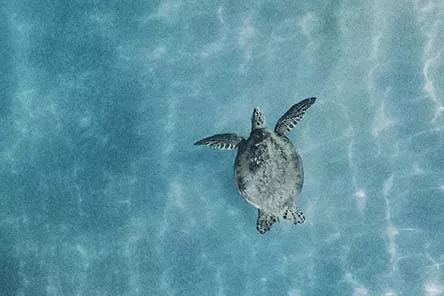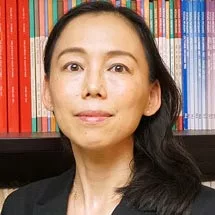The Sustainability Social Sciences (3S) initiative is a collaborative, multidisciplinary effort aimed at understanding how social structures and institutions shape sustainability challenges and drive solutions. It seeks to:
- Highlight the roles of social structure and institutions in sustainability challenges and solutions
- Foster a sense of unity of faculty, students, and staff who are committed to create a just, livable, and healthy environment
- Promote Native Hawaiian place of learning
- Promote integration of sustainability and its social dimensions across curriculum
- Encourage multidisciplinary/interdisciplinary approach in research and teaching
- Help connect 3S faculty with students, policy makers, other parts of UH, and others
- Focus on more resources for research, teaching and engagement for 3S members
- Collaborate with other initiatives at UH for sustainability
Center of Excellence for Sustainability Across the Curriculum
CSS is proud to be designated as an Association for the Advancement of Sustainability in Higher Education (AASHE) Center for Sustainability Across the Curriculum.
Advancing Sustainability in Higher Education
AASHE’s visionary leadership and invaluable resources empower higher education institutions to advance sustainability efforts. The organization’s dedication to environmental, social and economic sustainability drives transformative change on campuses around the world.

Sustainability Teaching Award
This award recognizes leaders in sustainability education and promotes teaching excellence.
- Eligibility: Open to full-time, current College of Social Sciences faculty and graduate students who have taught sustainability-related undergraduate and/or graduate courses or programs.
- Nominations: Accepted from within UH Mānoa, including faculty, staff, students, and alumni. Self-nominations are welcome.
- Nomination Period: TBA

Annual Workshop: Sustainability and Climate Change Across the Curriculum
The workshop will bring together representatives from national and local organizations and educators from various disciplines, institutions and communities to collaborate on integrating social, economic and environmental sustainability into undergraduate education. Designed for faculty members, instructors and graduate students, the workshop aims to inspire and enhance sustainability content across the curriculum.
- Spring 2025 Workshop (March 1-2, 2025)
- Spring 2024 Workshop (April 20-21, 2024)
Academic Offerings
- SUST 102/GEO101 The Natural Environment (3)
- SUST 102L/GEO101L The Natural Environment Lab (1)
- SUST 114/PLAN101 Sustainable Cities (3)
- SUST 204/ANTH204 Historical Ecology of Hawai‘i (3)
- SUST 222/ES221 Hawaiians (3)
- SUST 250/SOC230 Introduction to Sustainability from Social Science Perspectives (3)
- SUST 314/GEO302 Global Environmental Issues (3)
- SUST 315/GEO305 Water and Society (3)
- SUST 318/ES308 Race, Indigeneity, and Environmental Justice (3)
- SUST 321/ES320 Hawai‘i and the Pacific (3)
- SUST 322/GEO322 Globalization and Environment (3)
- SUST 324/POLS324 Global Environmental Politics (3)
- SUST 325/COM325 Communicating Sustainability (3)
- SUST 326/GEO325 Geography, Environment, and Society (3)
- SUST 330/GEO330 Culture and Environment (3)
- SUST 332/ECON332 Economics of Global Climate Change (3)
- SUST 333/ANTH333 Climate Change and Cultural Response: Past, Present, and Future (3)
- SUST 335/ANTH335 Society and Environment (3)
- SUST 336/ECON336 Energy Economics and Policy (3)
- SUST 341/ES340 Land Tenure and Use in Hawai‘i (3)
- SUST 350/ECON350 Sustainable Development (3)
- SUST 351/ES350 Economic Change and Hawai‘i’s People (3)
- SUST 380/POLS380 Environmental Law and Politics (3)
- SUST 387/POLS387 Politics of the Ocean (3)
- SUST 394/SOC394 Internship for Sustainability and Social Justice (3)
- SUST 404/GEO404 Climate, Air Quality, & Policy (3)
- SUST 412/ECON409 The Ocean Economy (3)
- SUST 413/GEO411 Past Global Change and the Human Era (3)
- SUST 415/GEO415 Nature-Based Tourism Management (3)
- SUST 423/GEO422 Agriculture, Food and Society (3)
- SUST 426/GEO426 Environment, Resources and Society (3)
- SUST 455/ES455C Hawaiian Sovereignty in Pacific Context (3)
- SUST 458/ECON458 Project Evaluation and Resource Management (3)
- SUST 461/ES460 Global Ethnic Conflict (3)
- SUST 482/ANTH482 Anthropology and the Environment: Culture, Power, and Politics (3)
- SUST 620/PLAN620 Environmental Planning and Policy (3)
- SUST 625/PLAN625 Climate Change, Energy and Food Security in the Asia/Pacific Region (3)
- SUST 628/PLAN628 Urban Environmental Problems (3)
- SUST 632/PLAN632 Planning in Hawai‘i and Pacific Islands (3)
- SUST 636/ECON636 Renewable Energy Economics and Policy (3)
- SUST 637/ECON637 Resource Economics (3)
- SUST 638/ECON638 Environmental Resource Economics (3)
- SUST 647/PLAN647 Urban and Regional Planning for Sustainability (3)
- SUST 670/SOC670 Sociology of Sustainability (3)
- SUST 763/GEO763 Research Seminar: Agricultural Geography (3)
Bachelor of Arts (BA) – Geography and Environment
The Bachelor of Arts in Geography and Environment focuses on the study of places and the relationships between people and their environment, including the examination of how cultural and political economic institutions interact with the natural environment, ways that locations and places impact people, and how these relationships change over time. It offers students an interdisciplinary academic training to study critical issues that face modern society, such as globalization and its regional implications, climate change and its effects, resource use and sustainability, cultural change and environmental consequences, geopolitics, and the use of geospatial technologies.
Combined Bachelor’s and Master’s Degree (BAM) – Geography and Environment
The combined Bachelor’s and Master’s Degree in Geography and Environment is a five-year program that focuses on the study of places and the relationships between people and their environment. Topics areas include the examination of how cultural and political economic institutions interact with the natural environment, ways that locations and places impact people, and how these relationships change over time. Students enhance their skills to think politically about the world and learn how to produce quality scholarship and analysis.
Undergraduate Certificate – Geospatial Information Science
The undergraduate certificate in Geospatial Information Science is offered by the Department of Geography and Environment. It provides students with practical geospatial information science skills and offers a systematic set of courses that focus on the acquisition, processing, generation, visualization, analysis, management and dissemination of geospatial data. Students majoring in natural resource management, earth and ocean sciences, biophysical and social sciences find the certificate of particular interest.
Faculty Experts in Sustainability
The College is home to researchers who are advancing sustainability research and knowledge across the social sciences curriculum.
- John (Jack) Barile | Faculty, Department of Psychology
- David W. Beilman | Faculty, Department of Geography and Environment
- Leah Bremer | UH Economics Research Organization (UHERO)
- Steven Bond-Smith | Faculty, UH Economics Research Organization (UHERO)
- Kimberly Burnett | Faculty, UH Economics Research Organization (UHERO)
- Patricia Amaral Buskirk | Faculty, School of Communication and Information (Communication)
- Ruben Enrique Campos | Student Support Specialist, College of Social Sciences
- Priyam Das | Faculty, Department of Urban and Regional Planning
- Micah Fisher | Faculty, School of Communication and Information (Matsunaga Institute for Peace)
- Noelani Goodyear-Kaopua | Faculty, Department of Political Science
- Ulla Hasager | Director of Civic Engagement, College of Social Sciences
- Marina Karides | Faculty, Department of Geography and Environment
- Jennifer Kagan | Faculty, Public Administration Program
- Aurora Kagawa-Viviani | Faculty, Department of Geography and Environment
- Kyle Kajihiro | Faculty, Department of Ethnic Studies
- Aya H. Kimura | Faculty, Department of Sociology
- Hye-ryeon Lee | Faculty, School of Communication and Information (Communicology)
- Ketty Loeb | Faculty, Institute for Sustainability and Resilience
- Keahiahi Long | Faculty, School of Communication and Information (Library and Information Science)
- John Lynham | Faculty, Department of Economics
- Fliex Mantz | Faculty, Department of Political Science
- Davianna Pomaikai McGregor | Faculty Retired, Department of Ethnic Studies
- Dan Milz | Faculty, Department of Urban and Regional Planning
- Mary Mostafanezhad | Faculty, Department of Geography and Environment
- Jonathan Padwe | Faculty, Department of Anthropology
- Seth Quintus | Faculty, Department of Anthropology
- Subhashni Raj | Faculty, Department of Urban and Regional Planning
- Michael Roberts | Faculty, Department of Economics, UH Economics Research Organization (UHERO)
- James Roumasset | Faculty Emeritus, UH Economics Research Organization (UHERO)
- Suwan Shen | Faculty, Department of Urban and Regional Planning
- Maya Soetoro-Ng | Faculty Specialist, School of Communication and Information (Matsunaga Institute for Peace)
- Sanjeev Sridharan | Faculty, Social Sciences Research Institute
- Krisna Suryanata | Faculty, Department of Geography and Environment
- Nori Tarui | Faculty, Department of Economics
- Andrew Wertheimer | Faculty, School of Communication and Information (Library and Information Science)
- Jenifer Sunrise Winter | Faculty, School of Communication and Information (Communication)
Student Engagement
The College empowers students to actively participate in creating sustainable solutions through hands-on learning, collaboration and innovation.
The College and its departments lead the way in providing experiential learning opportunities in sustainability through internships, service learning and research. In addition, SUST/SOC 394 Sustainability Internship (3 credits, Spring Semester) has been added to the portfolio.
SUST/SOC 394 offers students practical experience through internships with partner organizations dedicated to improving sustainability and livability. Under the guidance of on-site professionals and a course instructor, students participate in hands-on work while exploring the broader social and economic contexts of their projects. Internships are available with public, private or non-profit organizations, offering valuable insights into real-world sustainability challenges.
Current partners include the Hawaiʻi Alliance for Progressive Action (HAPA), Holomua Farms, Mohala Farms and Sierra Club of Hawaiʻi. Students may also propose a new partner organization.
Contact the Sustainability Initiative
For general inquiries, email sustss@hawaii.edu.

Aya Kimura
Director, UH Center on Sustainability Across the Curriculum
Professor, Department of Sociology
Saunders 240
(808) 956-2706
Other Sustainability Projects
CSS faculty members have established the following independent research projects/organizations.
Hawaiʻi Coral Reef Initiative Research
Guided by the belief that the social sciences provide a critical foundation to long-term sustainability of natural resources.
Institute for Sustainability and Resilience
Helps Hawaiʻi meet local and global obligations to environmental sustainability, with an emphasis on well-being.
National Disaster Preparedness Training
Delivers educational programs related to homeland security and disaster management, with a focus on island and territory needs.
Water Resources Research Center
Operates as Hawaiʻi’s link to developing, implementing and managing complex water quality projects for the public’s benefit.